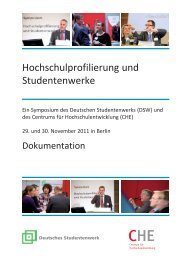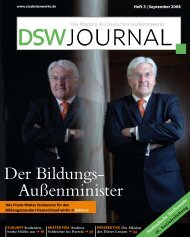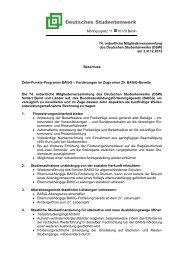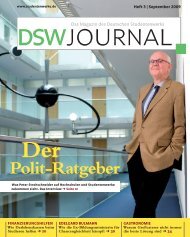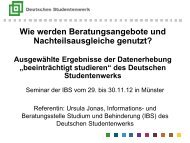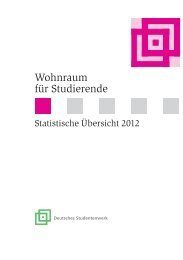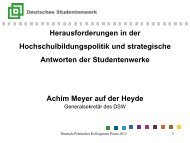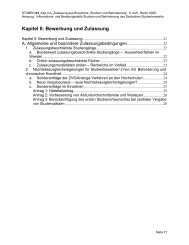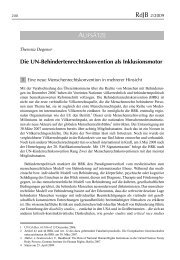the role of student affairs and services in higher education
the role of student affairs and services in higher education
the role of student affairs and services in higher education
Create successful ePaper yourself
Turn your PDF publications into a flip-book with our unique Google optimized e-Paper software.
SECTION III – THE CENTRAL ROLE OF PROFESSIONAL PREPARATION<br />
AND ONGOING PROFESSIONAL DEVELOPMENT OF STUDENT AFFAIRS<br />
AND SERVICES STAFF<br />
As a fundamental premise <strong>of</strong> provid<strong>in</strong>g pert<strong>in</strong>ent <strong>and</strong> appropriate high impact,<br />
<strong>student</strong> centered <strong>services</strong> <strong>and</strong> programs on an on-go<strong>in</strong>g basis, it is imperative<br />
that <strong>the</strong> <strong>in</strong>dividuals charged with <strong>the</strong>se tasks acquire <strong>the</strong> necessary knowledge<br />
<strong>and</strong> skills to carry <strong>the</strong>m out <strong>in</strong> an effective manner. Although formal academic<br />
preparation <strong>in</strong> <strong>the</strong> field is preferable, it is recognized that few <strong>of</strong> <strong>the</strong>se programs<br />
are <strong>of</strong>fered throughout <strong>the</strong> world. As a consequence, <strong>the</strong> follow<strong>in</strong>g elements<br />
provide <strong>the</strong> necessary foundation for <strong>the</strong> preparation <strong>and</strong> development <strong>of</strong> <strong>the</strong><br />
required expertise for <strong>student</strong> <strong>affairs</strong> <strong>and</strong> <strong>services</strong> work. It is understood that<br />
more specialized competencies (e.g., counsel<strong>in</strong>g <strong>and</strong> o<strong>the</strong>rs) will require a<br />
specific pr<strong>of</strong>essional designation.<br />
KNOWLEDGE OF STUDENTS AND STUDENT CULTURES<br />
It may seem obvious that <strong>the</strong> most important knowledge required <strong>of</strong> staff<br />
work<strong>in</strong>g <strong>in</strong> <strong>the</strong> area <strong>of</strong> <strong>student</strong> <strong>affairs</strong>/<strong>services</strong> should be a thorough knowledge<br />
<strong>of</strong> <strong>the</strong> <strong>student</strong>s with whom <strong>the</strong>y work. S<strong>in</strong>ce <strong>student</strong>s are <strong>the</strong> raison d’être for<br />
<strong>higher</strong> <strong>education</strong>, a thorough knowledge <strong>of</strong> <strong>the</strong> composition <strong>and</strong> characteristics<br />
(demographics) <strong>of</strong> <strong>the</strong> <strong>student</strong> population, <strong>the</strong> broad diversity, <strong>the</strong>ir expectations<br />
<strong>and</strong> satisfaction , <strong>the</strong>ir psycho-social/physical development, as well as <strong>the</strong>ir<br />
behavior <strong>and</strong> motivation is crucial <strong>in</strong> ensur<strong>in</strong>g <strong>the</strong> development <strong>and</strong><br />
adm<strong>in</strong>istration <strong>of</strong> <strong>the</strong> programs necessary to promote <strong>student</strong> success.<br />
In a word, <strong>student</strong> Affairs <strong>and</strong> <strong>services</strong> staff members are required to be, or at<br />
m<strong>in</strong>imum become, along with <strong>the</strong>ir faculty partners, <strong>the</strong> campus experts on<br />
knowledge <strong>and</strong> underst<strong>and</strong><strong>in</strong>g about <strong>student</strong>s <strong>and</strong> <strong>the</strong>ir development. Through<br />
careful analysis <strong>of</strong> exist<strong>in</strong>g data, <strong>the</strong> staff needs to develop a comprehensive <strong>and</strong><br />
accurate socio-cultural picture <strong>of</strong> <strong>the</strong>ir <strong>student</strong> population, identify<strong>in</strong>g <strong>in</strong>adequate<br />
or miss<strong>in</strong>g <strong>in</strong>formation elements so that <strong>the</strong>y can <strong>in</strong>itiate appropriate action <strong>and</strong><br />
<strong>in</strong>form campus adm<strong>in</strong>istrators, faculty, <strong>student</strong> leaders, <strong>and</strong> government <strong>of</strong>ficials<br />
<strong>of</strong> <strong>the</strong> nature <strong>of</strong> <strong>the</strong> <strong>student</strong> body.<br />
Although work <strong>in</strong> this area readily gives staff a feel for <strong>student</strong>s’ needs <strong>and</strong><br />
wants, a sort <strong>of</strong> phenomenological underst<strong>and</strong><strong>in</strong>g, it is crucial that scientific<br />
<strong>in</strong>struments <strong>and</strong> methods be used to supplement this view <strong>and</strong> provide a wider<br />
sociological perspective <strong>of</strong> <strong>the</strong> <strong>student</strong> body. In this sense, surveys, focus groups<br />
<strong>and</strong> panels provide, among o<strong>the</strong>rs, <strong>the</strong> appropriate context to better underst<strong>and</strong><br />
<strong>the</strong> data on <strong>the</strong> <strong>student</strong> population as opposed to <strong>in</strong>dividual <strong>student</strong>s.<br />
18



